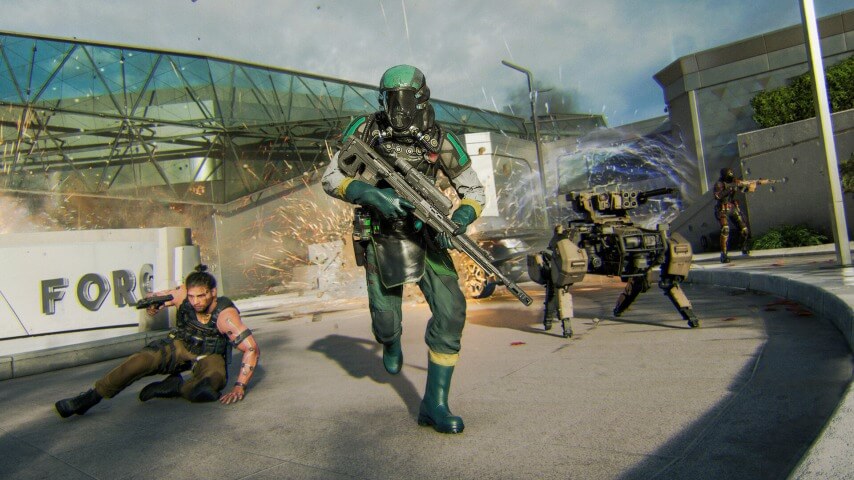As the AI slop era continues, we’re entering a new and deeply troubling phase where some big publishers are beginning to unapologetically use the controversial technology to replace voice actors and artists. The latest case is Call Of Duty: Black Ops 7, which seems to heavily feature generative AI art in its unlockable calling cards (these are nameplates attached to your profile), posters, and reward icons, among other aspects of the game. Some of the calling cards are in the Studio Ghibli plagiarizing style popularized by OpenAI, and all of them look awful.
Call of Duty isn’t even hiding the fact that loads of its calling cards and other unlockables are AI generated this year.
For one of the biggest video game franchises in the world this is pretty disgusting…
[image or embed]
— Jade King (@konayma6.bsky.social) November 14, 2025 at 9:53 AM
While Activision didn’t specifically confirm if these cosmetics were AI-generated, they did admit that AI was used to make the game in a statement to XboxEra, which is corpo speak for their developers probably used GenAI to create the images.
Beyond angering many fans of the game, who paid $70 for a title full of ugly art made by robots, Black Ops 7’s use of gen-AI has caught the attention of a member of the U.S. government who is not happy about the news.
On Twitter, Rep. Ro Khanna (CA) bashed the game’s use of AI, citing it as an example of why greater regulations are needed around the technology. He called for artists to get a say in how AI is deployed, and that there should be taxes on “mass displacement” caused by these changes.
He also cited Nobel Laureate Daron Acemoglu’s proposition to implement the following: “Tax reforms to discourage excessive automation,” “Guardrails for worker input before deployment. Not a Luddite complete ban,” and “Support unions and workers to bargain for workers benefitting from productivity gains.”
While he frankly doesn’t address the ecological concerns of AI and seems to acquiesce that it will become a central part of game development and society writ large, Khanna’s rebuke of Black Ops 7’s AI art ties into ongoing questions about how to regulate the rapidly growing technology. The Republican-led House of Representatives previously tried to slip a 10-year ban on state and local AI regulation from Trump’s “Big Beautiful Bill,” before it was thankfully axed after heavy blowback from voters.
As for Black Ops 7, its use of generative AI isn’t the only reason why it’s getting bashed. The game’s single-player mode is online-only, will boot you if you’re idle for too long, and doesn’t feature checkpoints or pausing. It’s designed around co-op, but doesn’t provide you with AI allies, meaning playing solo is a slow and painful process. It is also apparently set in a big reused map from its Warzone mode. The game is currently sitting at Mixed on Steam with only 42% positive reviews, and its Metacritic user score is the lowest ever for a Call of Duty game, at a brutal 1.8/10— yes, user reviews tend to be plagued by brigading, but at least Steam requires users to actually own the game to leave feedback.
While the spread of AI nonsense is deeply depressing, at least it seems that many players aren’t happy about it, with Steam reviewers describing the game as an “AI generated slop shooter” and that “If there was a an award for ‘Worst Game of The Year’, there’s no doubt in my mind that it would go to Black ops 7.” Hopefully, the blowback will convince at least some of these out-of-touch suits that, regardless of what Elon Musk-fanboys on Twitter say, most people do want their art crafted by humans instead of machines.

 Keep scrolling for more great stories.
Keep scrolling for more great stories.
